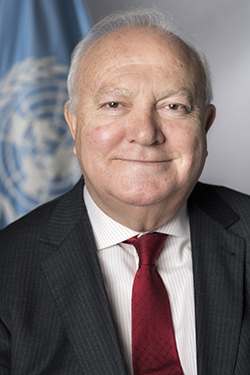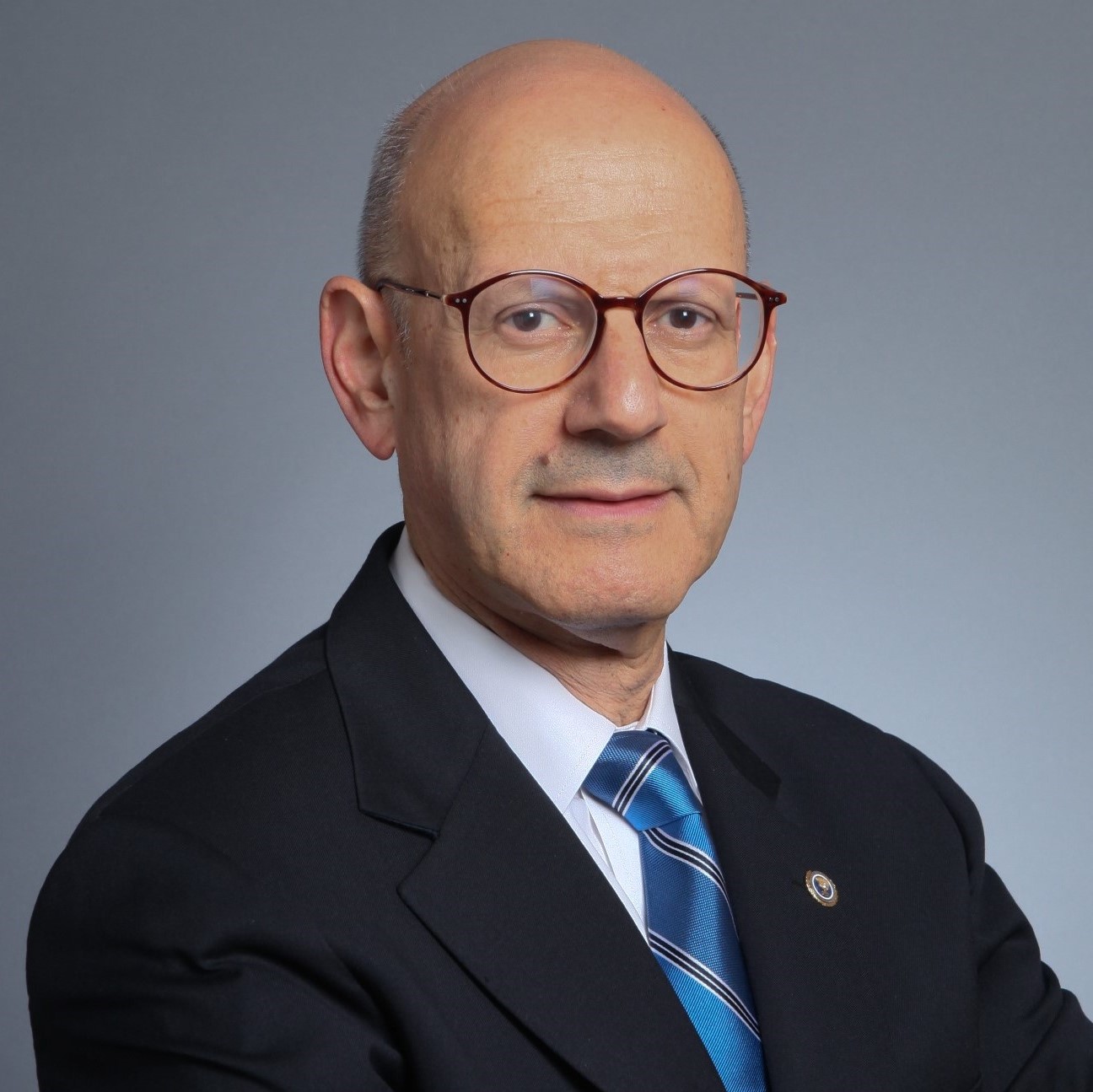Miguel Moratinos, charged with monitoring antisemitism and enhancing a system-wide response with the United Nations, told JNS that an intergovernmental group would hold a meeting in Cordoba, Spain, in June to discuss an action and response plan for antisemitism, including within the world body’s ranks.
His office has told JNS that the antisemitism summit is slated for June 20 in Cordoba, and multiple organizations told JNS that they plan to attend.
International Jewish leaders, and former and current Israeli officials, have said for decades that the United Nations suffers from antisemitism and an anti-Israel bias. The agency has declined to adopt a definition of antisemitism, let alone the widely accepted International Holocaust Remembrance Alliance (IHRA) one; it often criticizes Israel and favors the Palestinians; and some of its employees even glorify Nazis and sympathize with terror groups.
Moratinos told JNS back in February that he sees things differently. “Israel and the Jewish people are integrated in the essence, in the soul of the U.N. So, how is the U.N. going to be antisemitic?” he said. “I have to tell you, the U.N. is not antisemitic.”
Israel’s mission to the United Nations and Jewish groups have specifically faulted Moratinos and other U.N. officials for failing to condemn antisemitic comments from the U.N. special rapporteur for the Palestinians, Francesca Albanese, as well as members of the U.N. Human Rights Council’s Commission of Inquiry.
Last July, Miloon Kothari, a member of the commission, told an anti-Israel website that “the Jewish lobby” largely controls social-media companies. Kothari apologized, but Navi Pillay, commission chair, said the quote was taken out of context. (The full interview was published.)
The United Nations took no stance—firm or otherwise—when it emerged in December that Albanese, a longtime anti-Israel activist, had made antisemitic remarks during the 2014 Israel-Gaza conflict and also doubled down on the “Jewish lobby” slur.
“America and Europe, one of them subjugated by the Jewish Lobby, and the other by the sense of guilt about the Holocaust, remain on the sidelines,” Albanese had said. She has since doubled down, expressing support for the terrorist Hamas organization and insinuating that Israel has no right to defend itself against Palestinian terrorists.
The Israeli mission to the United Nations told JNS it could not yet confirm whether it would attend the Cordoba summit.
The mission and mainstream Jewish groups have been pushing the United Nations to adopt the IHRA working definition of antisemitism. Anti-Israel groups have written to the United Nations in opposition to the idea, claiming that it will stifle their ability to criticize and single out the Jewish state.
‘So far, it’s a very sparse agenda’
B’nai B’rith International told JNS it will send David Michaels, its director of United Nations and intercommunal affairs, to the gathering.
“We have engaged with Miguel Moratinos, the U.N. secretary-general and other stakeholders about related issues over the course of many years,” Michaels told JNS.

“Our desire is that this initiative make a serious contribution to confronting and tackling anti-Jewish bigotry, both outside and within U.N. bodies, including utilization of the IHRA working definition of antisemitism that unfortunately has faced undue political resistance from some quarters,” he said.
The American Jewish Committee’s delegate will be Rabbi Andrew Baker, director of international Jewish affairs. Baker will also represent the Organization for Security and Co-operation in Europe, he told JNS.
“So far, it’s a very sparse agenda. Presumably, there will be a draft plan to discuss. We hope there will be something to review before actually convening in Cordoba,” said Baker.
Katharina von Schnurbein, European Commission coordinator on combating antisemitism and fostering Jewish life, told JNS that “The E.U. aims to be on the forefront of the global fight against antisemitism. Close cooperation with our international partners is key, so I plan to attend.”
The office of Deborah Lipstadt, U.S. State Department special envoy to monitor and combat antisemitism, told JNS that it has not yet planned its June travel schedule.
Part of Moratinos’s mandate is to develop a U.N. action and response plan for antisemitism. He previously told JNS that the COVID-19 pandemic held up his preferred timeline for that plan. Multiple Jewish leaders told JNS that he is open to meeting regularly to discuss antisemitism and that his focal point role is a small focus of his overall U.N. responsibilities.
But despite rising levels of antisemitism in the United States and overseas, Moratinos has not presented a plan, despite nearly three years on the job. He has said that the U.N. can and will do a better job of rooting out Jew-hatred within its ranks.

A Spanish native and former foreign minister, he said he chose Cordoba for the upcoming meeting in part because of its historic Jewish quarter, including a medieval synagogue, and because it is the birthplace of Maimonides.
Moratinos told JNS the plan will have three parts. The U.N.’s global communications department will continue awareness initiatives, including those related to Holocaust remembrance. UNESCO will continue investing in educational programs with an increased focus on modern antisemitism. And the United Nations will establish an observatory mechanism for antisemitic attacks, as well as for safeguarding synagogues and other Jewish sites.
“We want to really have a clear engagement to denounce any antisemitic attitude or feeling in the system,” he said. “Our plan is similar to the European strategy. We will be inspired by certain elements.”
Daniel Mariaschin, CEO of B’nai B’rith, previously told JNS that if U.N. leaders aren’t committed to making internal changes, no one else will be either.
“If it’s not coming from the top, then why would country A, country B, country C—or any other U.N. agency for that matter—feel that they need at the very least to be careful in what they say?” he said.


























